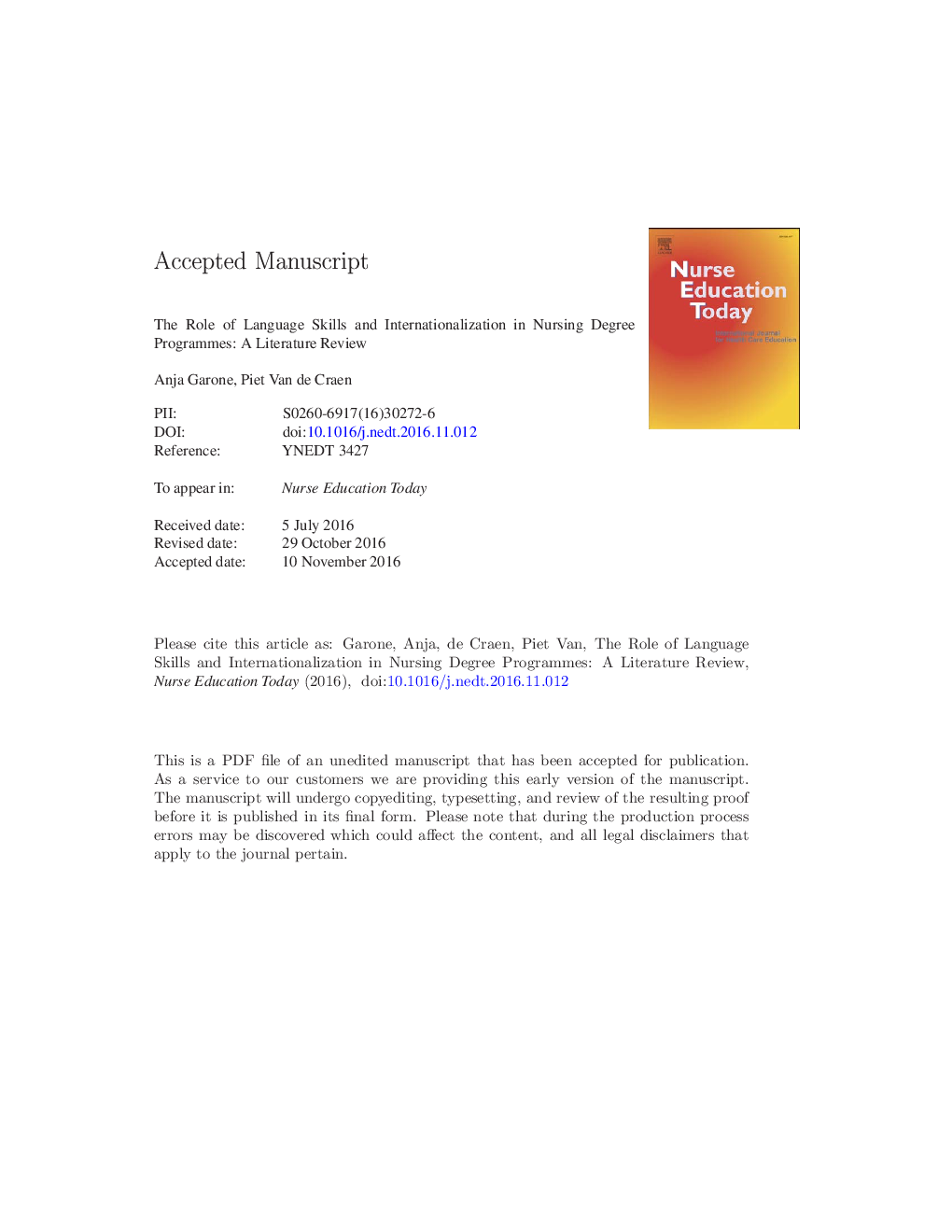| Article ID | Journal | Published Year | Pages | File Type |
|---|---|---|---|---|
| 4940841 | Nurse Education Today | 2017 | 17 Pages |
Abstract
Globalization and internationalization have had major influences on higher education, including nursing education. Since the signing of the Bologna declaration, many institutions in Europe have adopted English as the “scientific lingua franca”, and have instated courses and entire degree programmes taught in English. Several countries in the European Union also offer nursing degree programmes in English. With the rise of multilingualism in Europe, new challenges have become apparent in multilingual education. The Content and Language Integrated Learning (CLIL) approach has emerged as a new, innovative way to learn languages. The approach has become mainstream in primary and secondary education with proven success, and has also spread to higher education. Nurses are required to develop their linguistic skills such that they can communicate well with their patients and colleagues. Due to globalization, nurses are faced with increasingly diverse patients, presenting new challenges in nursing education concerning linguistic and transcultural preparation of students. Although CLIL is becoming more widely accepted in many academic faculties, it has not yet been studied sufficiently in the nursing education context.
Related Topics
Health Sciences
Nursing and Health Professions
Nursing
Authors
Anja Garone, Piet Van de Craen,
